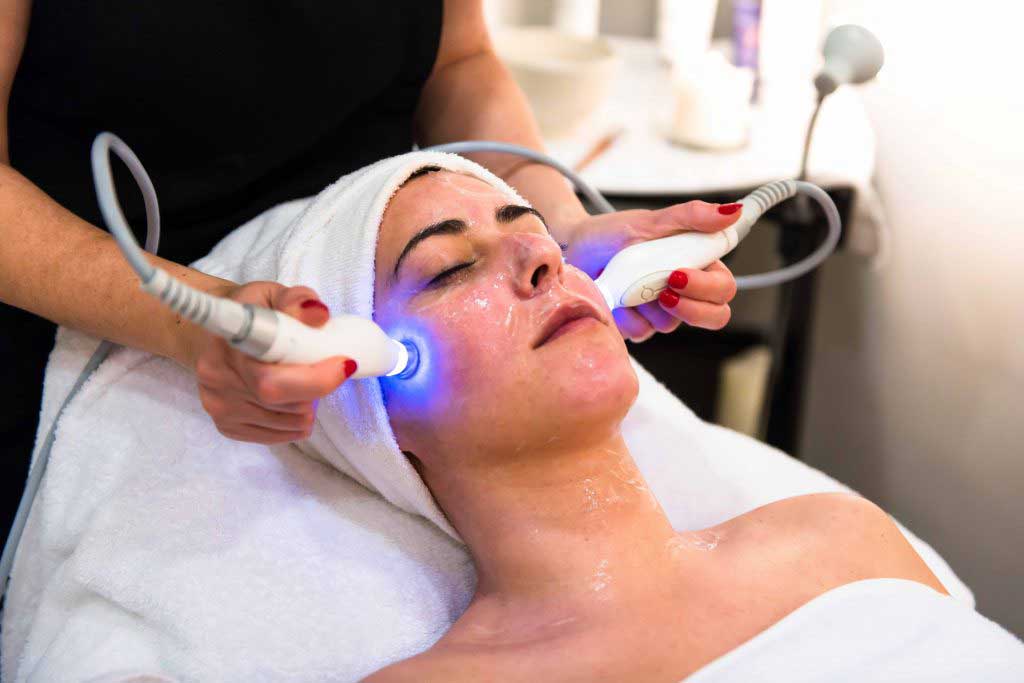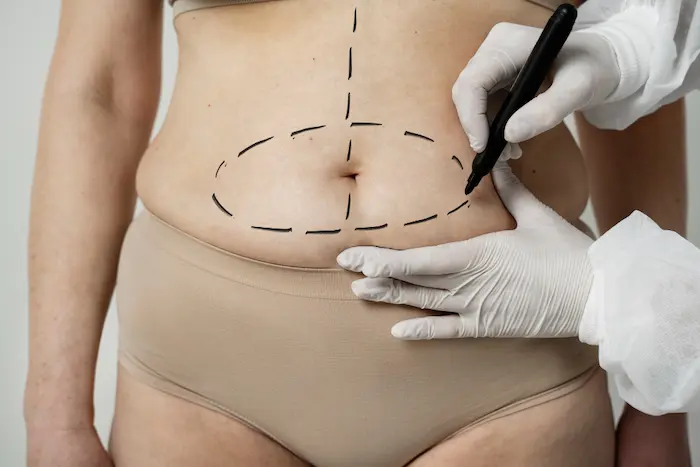
Facelift Aftercare: To Ensure Long-Lasting Results
Rhytidectomy or a facelift is a common cosmetic surgery in which people opt to improve their appearance. The goal is...
Rhytidectomy or a facelift is a common cosmetic surgery in which people opt to improve their appearance. The goal is to slow the aging process by tightening the skin and muscles under the skin of the face and neck. While this surgery is a big step toward looking younger, getting proper aftercare is essential to ensure long-lasting benefits and smooth healing.
If you are not serious during the healing period, your recovery time may extend. Furthermore, being careless can impact your facelift surgery results adversely as well. Sensing the importance of aftercare, we will discuss it in detail right here.
What are the benefits of facelifts?
The signs of aging will continue to increase if you do not act promptly. Notably, a facelift addresses these issues with perfection. A carefully done facelift procedure can help you to draw numerous benefits for your overall facial structure:
- Relaxed and tighter facial appearance, free of sagging skin
- No more crease lines or deep folds existing in the area surrounding your nose and the sides of your mouth
- Freedom from unwanted facial fat
- No more older-looking cheeks and jaws due to drooping skin
- Freedom from loose skin on your neck that often appears as a double chin
Imagine all these benefits and you just cannot resist opting for this treatment. No wonder, people worldwide are more inclined toward this surgery, and the stats here prove the same.
What do stats say about Facelift?
According to the stats, Facelift is a popular procedure and is here to stay for long. People from all age groups prefer adopting it to other procedures to flaunt an enhanced appearance.
Appreciable rise: The number of facelifts done in 2023 was 78,482, as compared to 72,668 in 2022. This was a significant 8% rise from the previous year, much higher than the growth in earlier years.
A hit among Aged people: The people most interested in this cosmetic procedure belong to the 55-69 cohorts according to the ASPS report. Abiding by the stats, 58.9% of people in this age group opt for facelifts and neck lifts.
Popular among younger cohorts as well: Surprisingly, younger people belonging to the age group of 30-39 and 20-29 are more keen to opt for these facial procedures, which is evident by a 7% rise in the cases of facial surgeries from these age groups
All these stats opine the importance of facelifts and related procedures among people worldwide from all adult age groups. Nevertheless, merely undergoing the surgery would not be enough to inflict the intended results. Instead, proper aftercare is equally essential to realize the expected goals.
Aftercare recommendations
Here are some noteworthy facelift aftercare suggestions that you may follow to anticipate long-lasting results.
1. Do what your surgeon tells you
After getting a facelift, the most important thing is to follow your surgeon's directions carefully. These instructions are specific to your treatment and health. You should follow them to get the best result. Medicine schedules, wound care methods, and exercise limits are all common types of directions. Their recommendations regarding a balanced diet and work-life balance can facilitate quicker and better healing.
2. Take care of bruising and swelling
After a facelift, you may have swelling and bruises that last for a few weeks. During the first 48 hours, place cold packs on the treated areas to lessen these effects. As much as possible, keep your head up. To lessen swelling, do this even while you sleep. Do not bend over or lift enormous things. These things can make the swelling worse and raise the risk of problems.
3. Dealing with pain
Feeling some discomfort and slight pain during the first few days of healing is normal. To help you deal with this, your doctor will probably give you painkillers. Follow the directions on these medicines, and do not consume more than the suggested amount. If you are in a lot of pain or notice other strange signs, visit your surgeon immediately.
4. Keep cuts and wounds dry and clean
Taking good care of wounds is essential to protect them from infection and help them heal properly. Clean and dry your wounds and follow your surgeon’s instructions to clean the area. Mostly, this means washing gently with water and light soap. The next step is to use the recommended ointments.
5. Stay out of the sun
Since you had surgery, the sun will hurt your skin more. Wear a broad-spectrum sunscreen to protect your cuts and the skin around them from direct sunlight. Use sunscreen with an SPF of at least 30. Wear a hat with a wide top and stay out of the sun during busy hours.
6. Do not pick at scabs
Scabs will form over your cuts as they heal. It is essential not to pick or scratch them. Any such activity can leave scars and raise the risk of getting an illness. Let the scabs fall off independently as part of the healing process.
7. Eat a healthy diet
A well-balanced meal full of vitamins and minerals can help the body heal at a fast pace. It is also good for your health in general. Ensure to eat a lot of whole grains, fruits, veggies, and lean meats. Foods high in vitamin C, zinc, and protein are beneficial for tissue healing and collagen development.
8. Drink water
Getting enough water is essential for satisfactory healing. Drink a lot of water throughout the day to keep your body fresh and help eliminate waste. Try to stay away from alcohol and coffee as much as possible. This procrastination can make you lose water and slow down the repair process.
9. Slowly Getting Back To Normal Activities
During the early stages of healing, complete rest is essential. Avoid doing any complicated workout or exercising for at least two weeks after surgery. As you feel better, slowly start doing light things, like walking. Don't push yourself too hard and always listen to your body. Before starting any new intense workout plans, talk to your surgeon.
12. Don't smoke or drink alcohol
Both smoking and drinking alcohol can make it much harder to heal, bringing your aftercare goals to a standstill. It can also reduce the duration of your surgery results. Nicotine reduces the speed of blood circulation, making it longer to heal and raising the risk of problems. In addition, alcohol can make your medicine less effective, causing your face to swell and bruise more easily. Therefore, it is wise not to smoke and drink while you are recovering.
13. Care for your skin
Keeping up with a good skincare routine is essential if you want to retain the results of your facelift for a long time. Use mild cleaners, moisturizers, and anti-aging items on your skin. These need to have vitamins, retinoids, and proteins in them. Make it a habit to use sunscreen daily to protect your skin from UV damage. It may speed up the aging process.
14. Set up regular follow-up meetings
Do not miss any of your follow-up visits with your surgeon. During these meetings, your surgeon can check on your health and talk to you about any worries. They can give you more advice on how to keep your facelift results. Do not be afraid to visit your surgeon if you notice any changes or have questions about your healing.
15. Making choices for a healthy life
Keeping up a healthy lifestyle can help your facelift last longer. Eat a balanced diet, drink plenty of water, work out daily, and avoid any sort of addiction, which is bad for health and can affect healing. Taking care of your stress and getting enough sleep is also crucial for your well-being.
Last Words
Facelift surgery helps to accentuate your look appreciably. People of all age groups prefer undergoing this treatment to flaunt an enthusiastic face post-surgery. Those belonging to the 55-69 cohort opt for this procedure the most.
However, it is popular among younger people as well. But, merely undergoing the surgery is half the job done. Equally indispensable is to follow a proper aftercare routine for quick healing. With the help of an experienced surgeon, you can expect to get a successful treatment with your face becoming more adorable.
To retain your results for a long time, you should abide by the aftercare recommendations of your surgeon. It will ensure swift and smooth healing so that you can enjoy the benefits of your facelift for a long time. Remember that your surgeon is the best person to give you specific information and help in satisfactory healing.






Comments
Login & Write comment